Integrated Medicine for Animals
Veterinary Integrated Medicine – Integrated Veterinary Medicine
Integrative Medicine
We have been working in the field for more than 40 years and integrate our therapies into an individualised treatment program for each patient
Holistic, Alternative, Natural or complimentary?
FAQ Integrated Veterinary Medicine
 Integrated medicine (more commonly ‘Integrative Medicine‘ in the USA) has become something of a ‘buzz-phrase' in recent times. This page is written in an attempt to clarify the subject and make it easier for the reader to understand the meaning behind the term and what an INTEGRATED VET might do in his or her daily work.
Integrated medicine (more commonly ‘Integrative Medicine‘ in the USA) has become something of a ‘buzz-phrase' in recent times. This page is written in an attempt to clarify the subject and make it easier for the reader to understand the meaning behind the term and what an INTEGRATED VET might do in his or her daily work.
Integrated veterinary medicine implies an effort on the part of the vet (veterinarian) to bring different therapeutic options to bear on a patient's problems, with a view to providing better and more lasting healing. Integrated medicine should provide a greater patient benefit than using one approach alone and in isolation. Integration should mean an active effort to ensure that the therapies neither clash nor summate, in such a way as to represent a negative influence on the patient. There should be synergy. In order to practice a truly integrative approach, the vet must not only have a good understanding of each therapy, particularly with regard to how they may impinge upon each other (for better or for worse) but also banish prejudice and dogma, so that he or she can make use of the different beneficial effects of each therapy or technique, without inflicting a narrow and bigoted approach on the patient.
Integrated medicine can include the full range of so-called ‘alternatives' and may also, of course, include an understanding of and willingness to use modern conventional medicine techniques where necessary for patient welfare and where compatible with the treatment objectives.
An example of this at work may be, for instance, a case of ruptured cruciate ligament in a Labrador. Our normal treatment would include integrative use of acupuncture, homeopathy, LASER therapy, chiropractic and a targeted exercise regimen as a form of physiotherapy. In some cases, we may also use hydrotherapy. However, just a few patients will not use the painful leg, however much we encourage them. This makes natural healing without surgery well-nigh impossible. Strategic, very short-term integrative use of an anti-inflammatory, pain-reducing drug* for a few days can break the pain and aversion ‘cycle' and encourage use of the injured leg, enabling the healing process to commence under the natural healing regimen. We will also refer cases that do not respond well for an opinion from an orthopaedic surgeon.
(*e.g. Aspirin, which we use on account of efficacy, safety and price, in a very specific routine to ensure safety. It is a drug that requires care in its use but which is free of the more dangerous insidious side effects that can be associated with the use of more fashionable and expensive NSAID drugs and has no mind-altering effects).
Integration of therapies is important for several reasons, for example:
- No single therapy can do everything we require of medicine. An integrated approach can amplify the medical benefit of our intervention.*
- Therapies can clash (disharmony) if not integrated in a deliberate and careful way.
- No single ‘diagnostic' approach to a patient will reveal all that we need to find. An integrated diagnostic appraisal may succeed where a single approach may fail.
- Dangerous summations may be possible between therapies (e.g. herbs and conventional drugs).
- The integrative approach is inclusive of ideas and contributions from many directions, therefore enhancing chances of success.
| Homeopathy | Acupuncture | Herbs | Chiropractic | Natural Feeding |
*Hahnemann, the founder of homeopathy, appeared to write vehemently against the concept of multiple therapies. However, I believe he was really very opposed to ‘irrational' and mindless combination of medicines or therapeutic approaches, rather than being against the rational and careful integration of therapies.
Christopher, practicing integrated medicine at the Alternative Vet, is a holistic vet of more than 40 years experience in integrated and holistic medicine, especially homeopathy and is willing to share experiences, understanding and ideas with veterinary colleagues, veterinary students and animal ‘owners' on any aspect of vet holistic medicine. The AVMC was the first dedicated holistic veterinary practice in the UK, founded in 1987. He offers holistic vet advice for each and every patient.
N.B. Many of the therapies used at the AVMC are restricted to use by a fully-qualified veterinary surgeon (Veterinary Surgeons Act 1966). On this site, each page describing a therapy has a note, explaining this.
Holistic Horse Vetting – Holistic Pony Vetting
Holistic Horse Holistic Dog Holistic Cat Holistic Farm
These approaches to medicine and to treatment represent a philosophy that is alternative to the current conventional norm but the use of alternative therapies does not do away with the need for a thorough examination and assessment. Nor does it preclude the use of modern diagnostic techniques where necessary. A holistic vet will take into account all these things, in addition to offering close scrutiny of lifestyle, diet, environment, riding, tack, shoeing, grazing, stabling, housing, management etc., depending upon the species.
